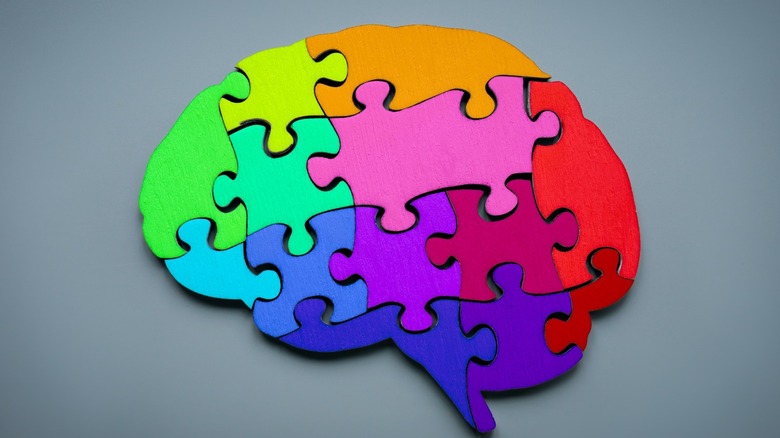What Does It Mean If You Are Neurotypical?
Neurodiversity is an idea that can be boiled down to a simple point: we are all human regardless of how our brains work. It is a reconceptualization of what is "normal" and "abnormal." In fact, the concept proposes that it is normal for people to vary in brain development, per Psychology Today.
Neurodiversity aims to normalize neurological differences in the brain — as seen in conditions like ADHD, autism, dyslexia, Tourette's, and synesthesia — by respecting and celebrating the differences of neurodivergent people, rather than "pathologizing" them within the confines of the medical system (per Healthline).
According to Cleveland Clinic, many neurodivergent people have unique strengths. For example, neurodivergent people may have enhanced memory, attention to detail, and mathematical abilities. They also have unique challenges — neurodivergent people may struggle in some social situations.
Many workplaces are now turning to neurodivergent workers because of their creativity and abilities to solve detailed problems (per CNBC). As a result, neurodivergent people and those with typical functioning now often work together. So what do you call the complement to someone who is neurodivergent?
Being neurotypical does not mean that you are better
The term neurotypical describes those people with neurological development or function that is on par with cultural expectations (per Healthline). According to Medical News Today, neurotypical people develop skills (including social and organizational skills) at around the same rate and time as most of their peers. They are able to adjust to a new routine and also can focus for a long period of time. Further, neurotypicals may be able to tolerate loud noises — such as a noisy office — without much issue.
From the perspective of a neurodivergent person, people viewed by society as "normal" are neurotypicals (via WIRED). If you describe yourself as a neurotypical, you are supporting the idea that individual differences should be honored, not discriminated against. In short, the actual term neurotypical — along with the terms neurodiversity and neurodivergent — is a linguistic admission that shows you respect neurological differences, according to Healthline.
Of course, that's only if you use the language in an empathetic (and not sarcastic) way. But everyone is different, so try to use the terms that each person prefers (per Medical News Today). Remember, if you want to be inclusive and polite, you should exercise empathy with others. If you are a neurotypical who interacts with someone who is neurodivergent, try to listen and be considerate (per Cleveland Clinic).


